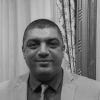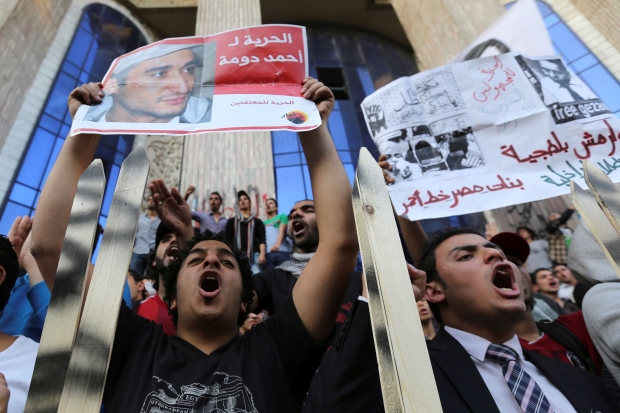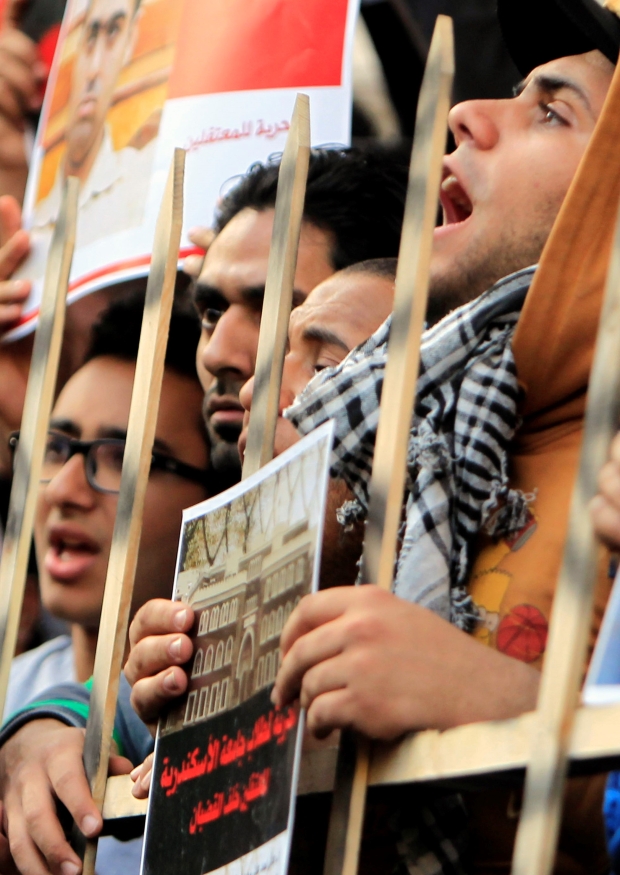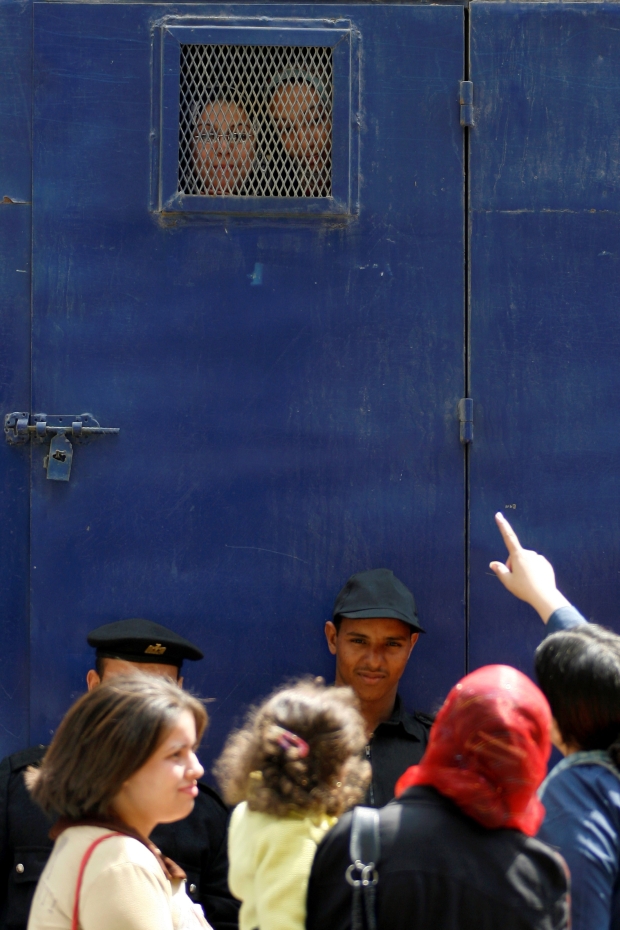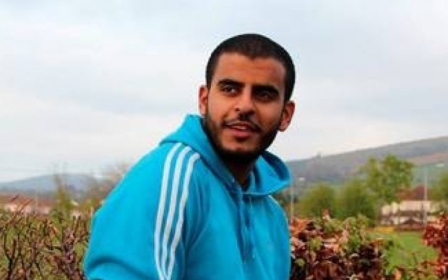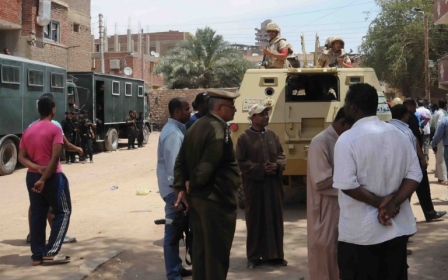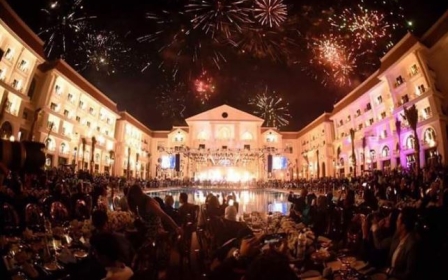Sisi's Egypt and the politics of fear
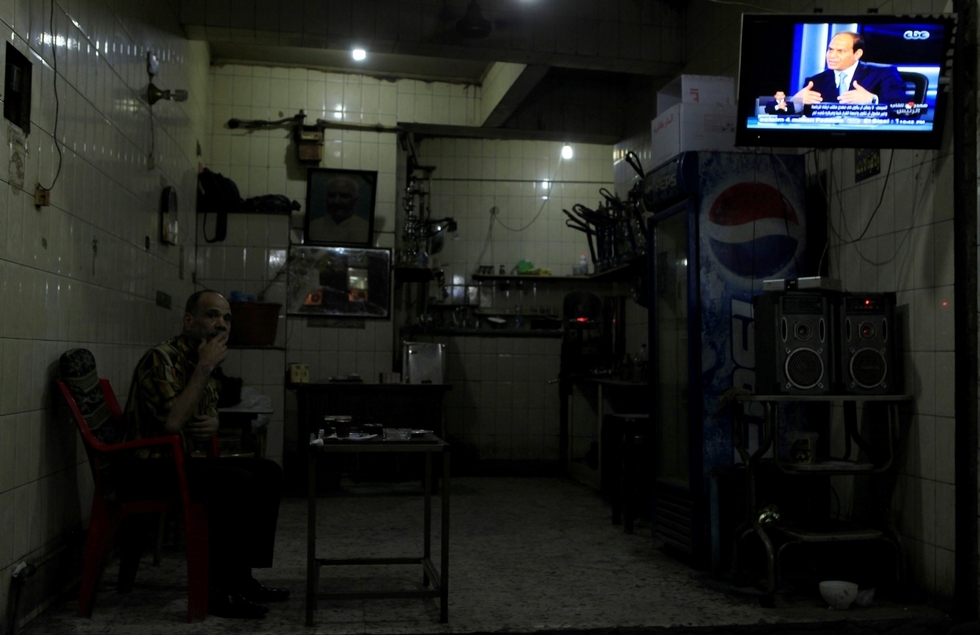
A few weeks ago, at 1am in a Cairo side-street cafe, I was struck by how empty the previously popular cafe was. But a friend explained to me that in the last few years, the government had sought to empty such cafes through continued raids.
Independent thinkers frighten those who rule and so they must be made to feel the iron fist. In this country, an opinion, a Facebook page, an article, or a casual conversation, not a political one necessarily, can land you in jail. Fear, in these parts, holds sway. Welcome to the land of fear.
The land of fear
"Fear does play a prominent role in Egyptian public life," explains Vivienne Mathias-Boon, assistant professor of international relations of the Middle East at the University of Amsterdam. Mathias-Boon specialises in individual and social trauma. Though, by no means, unique to the Sisi regime, fear has long been a divide and conquer mechanism used by totalitarian regimes the world over to disconnect people from one another and retain power.
It stood to reason, particularly since the military coup in 2013, that violence would be the unique imprimatur of President Abdel Fattah al-Sisi rule. A significant paradigm shift was underfoot as the military rulers, who had enjoyed totalitarian purview since the 1952 revolution, recognised that hope or some semblance of Egyptian self-determination threatened their political/economic hegemony.
A presidential report - while the Muslim Brotherhood's Mohammed Morsi ruled in 2012 - that was never made public, showed an army guilty of "a catalogue of crimes against civilians beginning with their first deployment to the streets…more than 1000 people…are said to have gone missing during the 18 days of the revolt…scores turned up in Egypt’s morgues, shot or bearing signs of torture".A determination was made by the all important Supreme Council of Armed Forces (SCAF), with Sisi as its representative: opposition would be crushed so violently that for every loud voice, 1000 would be silenced. Examples must be made of all who oppose, not just the Muslim Brotherhood. Though this approach became explicit post-coup, it began in the revolution's early days.
Long before forced disappearances came under the microscope last year, with the disappearance of hundreds of Egyptians by the regime, the report made clear that the army was doing this in 2011.
Epidemic torture
But the Brotherhood leadership kept it from public gaze and investigation of military leadership was never conducted. Not only did criminals go unpunished but disinformation - and knowledge preempted - produced more fear.
No less poisonous than the torture is the wink of acceptance and silence by millions of Egyptians; think of them as the dictator's invisible right hand
Human Rights Watch (HRW) correctly termed torture an epidemic in Sisi's Egypt. "Egyptian President al-Sisi has effectively given police and National Security officers a green light to use torture whenever they please." No less poisonous than the torture is the wink of acceptance and silence by millions of Egyptians; think of them as the dictator's invisible right hand.
Retorts from ordinary Egyptians with different social, economic backgrounds - all heard this summer - were: "There are always a few bad apples"; "The president can't know of this, he is a man of God"; "Human rights Watch and Amnesty International are groups intent on destabilising the country and are affiliated with the Muslim Brotherhood".
The goal is not to, merely, give birth to fear within the victim but to turn him/her into a walking factory of fear, able to transmit it to family, friends and acquaintances
That the guillotine of torture induces fear in the many should not surprise. According to the HRW report: "A typical torture session begins with security officers shocking a blindfolded, stripped, and handcuffed suspect with a handheld electric stun gun, often in sensitive places such as the ears or head."
The goal is not to merely give birth to fear within the victim but to turn him/her into a walking factory of fear, able to transmit it to family, friends and acquaintances.
Rape is central to the cancerous state terrorism cocktail. In a society married to sexual modesty, the brutalisation of rape is a deadly weapon against both sexes. In Egypt, where the majority looks with disdain upon homosexuality, the rape of men by men carries particularly acidic and intentional shaming meant to shut up the victim until their last breath.
The will to fight on
Those are the explicit ways in which fear works, but the trauma that results is the ugly gift that keeps on giving. This is what the regime counts on, but Professor Mathias-Boon argues that some "feel stronger in their determination" to fight the system.
But "these exceptions exist". In essence, some cases can withstand what the military paradigm seeks to break.
As an Egyptian intellectual pointed out recently, on Egypt's only relatively open forum for exchanging ideas, Twitter: "Fear is the ugliest word in existence, the root of all evil and the biggest danger to happiness."
Despite these well-choreographed slaps to freedom of speech, there are those who dare speak and the world recognises their efforts. Mohamed Zaree, activist and director of the Cairo Institute for Human Rights Studies (EIPR), who won the Martin Ennals award, is a living example.
However, under the present circumstances, even accepting the award in person is a tribulation.
Despite brilliant work in documenting human rights abuses, there was little he could do to secure his prize. He has been prevented from travel by an Egyptian government doing all that it can to shut down such voices. The mindset that deemed Zaree persona non-grata also closed down Al Nadeem centre, a medical centre for torture victims.
But for those few able to overcome fear, the truth is a goal and a bridge to less murky waters. "This award belongs to the tens of thousands of Egyptian citizens who have been tortured, imprisoned, disappeared or killed over the last six years, for nothing more than standing up to corruption and tyranny through peaceful means," Zaree told reporters.
The penalty for cowardice
In inaugurating the first phase of his latest mega project, worth $45bn of administrative capital, Sisi could not waste another opportunity to tell Egyptians to shut up. "I am happy with criticism but from an informed, aware and knowledgeable people." Naturally, it is Sisi who determines who these "knowledgeable people" are.
Those not identified by the regime as "informed" have a variety of options always available to them: forced disappearance, imprisonment, torture or death. When the president of the nation makes it clear he holds in contempt those who oppose him, fear will rule the roost.
As analysts, we can try to predict when an explosion will occur, but to do so while eschewing comprehension of the land of fear ignores the ugly truth: fear can paralyse.
Naguib Mahfooz, the Nobel winning Egyptian novelist, in Personal Reflections, an autobiography, understood this: "I asked Sheikh Abd Rabou El Taaih: When will the country correct its course? When its people believe the penalty for cowardice is more costly then the peace it affords?"
- Amr Khalifa is a freelance journalist and analyst recently published in Ahram Online, Mada Masr, The New Arab, Muftah and Daily News Egypt. You can follow him on Twitter@cairo67unedited.
The views expressed in this article belong to the author and do not necessarily reflect the editorial policy of Middle East Eye.
Photo: A man smokes next to a television interview broadcast on CBC and ONTV with presidential candidate and Egypt's former army chief Abdel Fattah al-Sisi, at a cafe in Cairo 6 May 2014 (REUTERS/Amr Abdallah Dalsh)
This article is available in French on Middle East Eye French edition.
Middle East Eye propose une couverture et une analyse indépendantes et incomparables du Moyen-Orient, de l’Afrique du Nord et d’autres régions du monde. Pour en savoir plus sur la reprise de ce contenu et les frais qui s’appliquent, veuillez remplir ce formulaire [en anglais]. Pour en savoir plus sur MEE, cliquez ici [en anglais].


